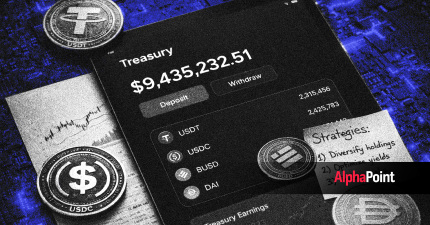How a Nationwide Payment Platform Assists With Financial Inclusion in Banking
Unbanked populations don’t just exist in underdeveloped countries. People without access to basic financial services also live in industrialized countries like the United States.
Recent data shows that at least 6 million people in the U.S. are unbanked, as well as over 1 billion people across the globe. Financial exclusion leads to widespread issues like economic depression and income inequality.
Fortunately, nationwide payment providers can promote financial inclusion across the globe. This guide will explain the benefits of embracing a nationwide payment platform and how it can contribute to financial innovation in banking.
The Importance of Financial Inclusion in Banking
Banks throughout the world have a vested interest in promoting financial inclusion. In doing so, they can increase their customer bases and introduce more people to the advantages of financial services, such as high-yield savings accounts and electronic payment options.
With that said, here are the benefits banks can realize by contributing to the cause of financial inclusion.
Economic Growth and Participation
Financial inclusion leads to broader participation in global financial markets and financial technology (Fintech). This increased financial activity can lead to greater economic growth in developing countries.
El Salvador, for example, became the world’s first country to adopt Bitcoin as a legal tender and create its own digital wallet. The development of the Chivo Wallet empowered more than 4 million Salvadorans to use Bitcoin for inclusive transactions and remittances.
Increased Access to Financial Products and Services
Delivering wider access to financial products and services can create opportunities for economic advancement and financial stability. For example, a banking customer can enroll in a high-yield savings account to gradually increase their savings with interest.
In addition, financial institutions can offer competitive loans and rewards programs that provide additional opportunities to low-income communities.
Equality and Empowerment
Financial inclusion is integral to global equality and empowerment initiatives. Providing marginalized groups with the same financial opportunities as majority populations can balance the socioeconomic playing field.
For example, people in developing countries, especially women and marginalized groups, may face barriers like a lack of official identification and limited financial literacy. To combat these limitations, financial institutions can provide digital educational materials and other informational resources.
In fact, Indonesia has trained digital ambassadors who mentor women in the region and help them take advantage of financial services. They also regularly publish educational resources for women and provide access to digital banking services through branchless financial service agents.
Common Barriers to Financial Inclusion
Financial inclusion may be the goal for many banks across the world, but achieving this objective has some glaring challenges, including:
- Lack of access to financial services: Millions of people around the world lack access to traditional financial services, such as credit cards and debit cards. Fortunately, nearly 5 billion people own smartphones. This means that banks can utilize digital payment solutions and mobile banking to engage unbanked populations.
- Low financial literacy: Financial literacy is a widespread issue, even within the U.S. In fact, research shows that only 57% of American adults are financially literate. This is a complex issue that requires a multi-faceted approach solution. However, efforts have revealed that simply increasing access to digital banking services is a powerful first step.
- Lack of financial instability policies: Sometimes, financial exclusion is out of the hands of a country’s general population, due to government instability. The good news is cryptocurrencies, blockchain technology, and nonbank digital assets can provide an alternative to unstable local currencies and unscrupulous policymakers.
The Role of Nationwide Payment Platforms in Financial Inclusion
A nationwide payment platform is a type of infrastructure that offers financial products and services with a low barrier of entry. Financial institutions can implement these platforms across an entire country, giving all citizens complete access to beneficial financial services and combating financial exclusion by:
Expanding Accessibility and Convenience
With the help of a nationwide payment platform, banks can deliver financial services to remote and rural areas with few or no traditional banks.
In addition, users can access nationwide payment platforms via a mobile app. This is especially important in regions where there is high smartphone usage but limited banking infrastructure.
Reducing Costs
Digital platforms almost always accrue lower overhead costs than traditional banking branches, making them a more economically viable option than physical expansion.
Service providers can use these platforms to reduce transaction and account maintenance fees and deliver low-cost digital financial services to poorer population segments.
Simplifying Banking Procedures
On top of being accessible to underserved populations, nationwide platforms usually feature straightforward, intuitive user interfaces. This makes it easy for customers to perform financial transactions, check their balances in real time, and receive push notifications.
A user-friendly payment platform can be especially beneficial for people with limited financial literacy or first-time users. Additionally, customers can easily set up an account on a nationwide payment platform, as opposed to a traditional bank.
These payment systems typically require minimal documentation to set up an account, lowering the barrier to entry and expanding access to those without multiple forms of identification.
Promoting Financial Literacy and Empowerment
Nationwide payment platforms excel in promoting financial literacy and empowerment of marginalized groups by offering easy access to:
- Educational resources: Many platforms provide users with a complete suite of financial education tools and resources to improve financial literacy. These resources explore topics like financial management, budgeting, saving money, investing, and credit.
- Personalized financial products: Financial platforms can give micro-loans and credit opportunities to small business owners, entrepreneurs, and investors. Not only do these platforms facilitate smooth transactions, but they can also offer customers the tools to grow their businesses.
Facilitating Inclusive Financial Services
A nationwide payment platform can offer tailored financial services that meet the needs of its customer base. In fact, diverse user groups can benefit from services that extend beyond traditional banking, such as:
- Bank accounts
- High-yield savings accounts
- Loans
- Insurance products
What’s more, providers can integrate these payment services with government programs to allow people to access their pensions, utilize government benefits, and receive financial aid. Moving these services to the digital front ensures that the benefits reach their intended recipients securely.
Enhancing Security and Transparency
Finally, a nationwide payment platform provides a protected financial system to make secure transactions. Many of these platforms use cutting-edge technology to protect user data and prevent financial fraud.
Crypto-friendly countries can even embrace blockchain technology to provide clear transaction records accessible to their customers. Blockchain can’t be altered by outside forces, so it helps protect users from corruption and mismanagement of funds.
Discover How AlphaPoint is Promoting Financial Inclusion Worldwide
Governments, banks, and financial institutions throughout the world are striving to improve financial inclusion. By increasing access to banking services, organizations can not only profit but also contribute to the economic empowerment of underbanked populations.
AlphaPoint is among the leading organizations in crypto promoting financial inclusion. We provide white label crypto services to both governments and financial institutions, empowering them to offer unmitigated financial access.
Our digital wallet ecosystem utilizes industry-leading technology to power financial solutions on a national scale, making it easier than ever to service populations around the world.
Reach unbanked users worldwide with AlphaPoint’s powerful wallet and merchant ecosystem.


